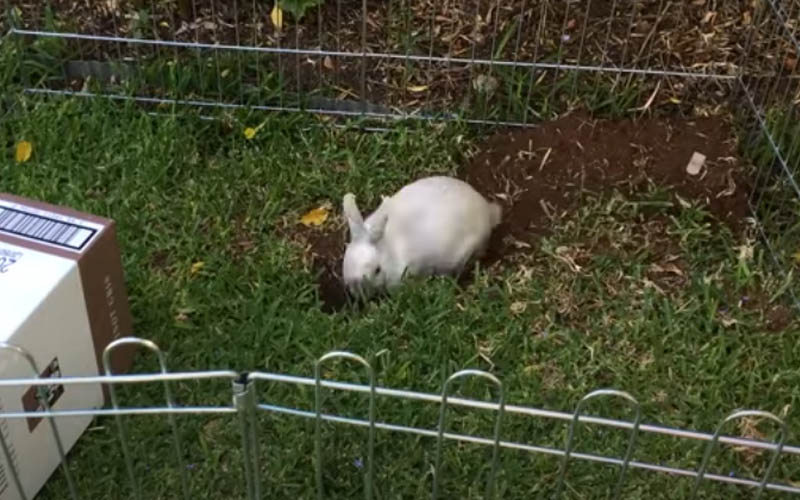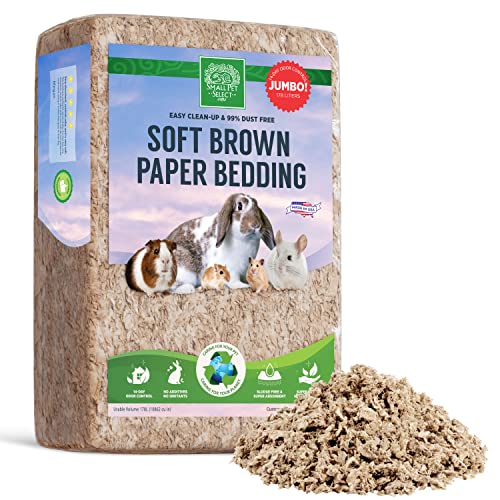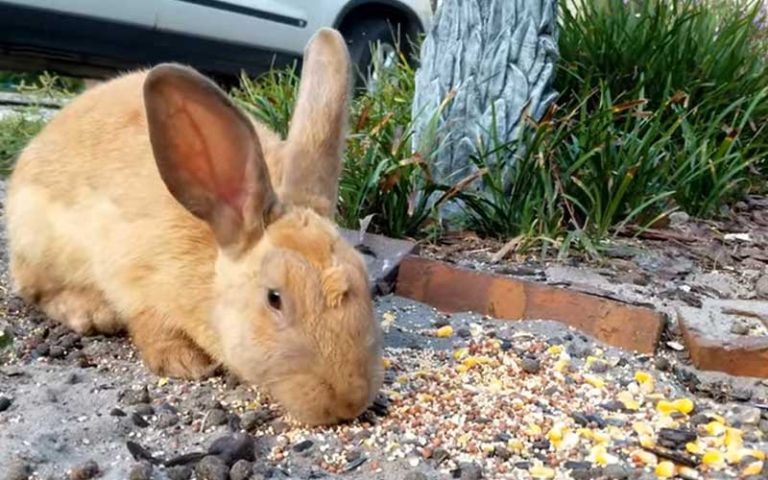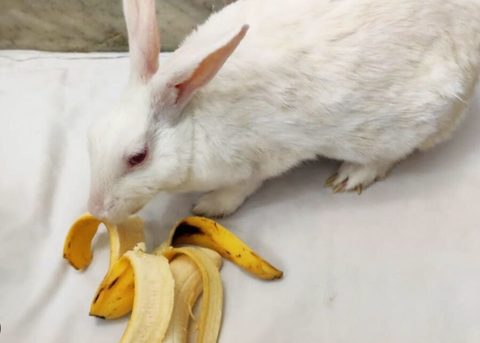10 Reasons: Why Is My Rabbit Digging All of a Sudden?
Your rabbit is likely digging suddenly because it’s a natural behavior. They dig to create a comfortable spot, explore, or mark territory. Ensure your rabbit has a designated digging area with appropriate materials like hay and safe soil.
Do Rabbits Dig Holes in The Ground?
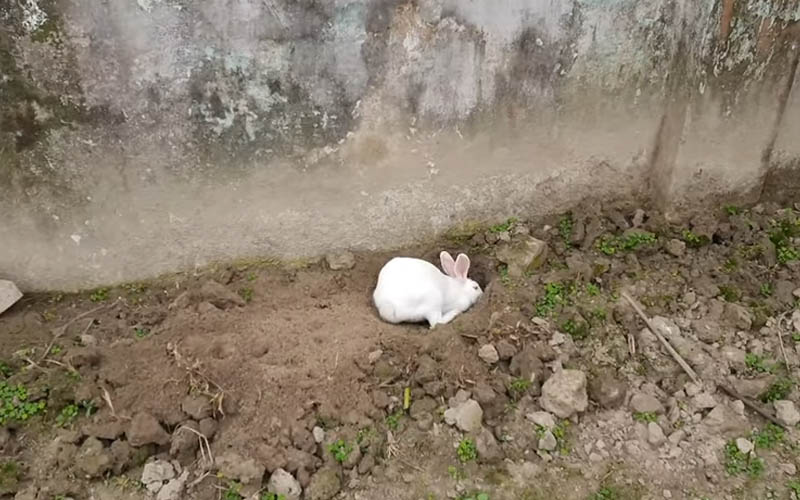
Rabbits are known to dig holes in the ground. They are burrowing animals by nature and create burrows, also known as rabbit holes or warrens, for various purposes.
Rabbits dig these holes for shelter, protection from predators, and as a place to rear their young. The burrows typically have multiple entrances and interconnected tunnels, providing the rabbits with escape routes and hiding places.
While wild rabbits are more commonly associated with burrowing behavior, domesticated rabbits may also exhibit digging behavior. Especially if they are kept outdoors or have access to suitable digging areas.
10 Reasons: Why Is My Rabbit Digging All of a Sudden?
Rabbit owners may find themselves perplexed when their furry friends suddenly develop a newfound interest in digging. Rabbits are naturally inclined to engage in this behavior for various reasons. Knowing these 10 reasons why your rabbit is digging all of a sudden is crucial for providing the appropriate care.
1. Instinctual Behavior
Rabbits are hardwired with strong instincts that prompt them to dig. In the wild, they create burrows for shelter and protection from predators. In captivity, a rabbit’s instinct to establish a safe and secure area may be demonstrated by its digging behavior. Providing alternatives, such as a cozy hiding spot within their enclosure, can help satisfy this instinct.
2. Territorial Marking
Digging can serve as a way for rabbits to mark their territory. By creating holes and rearranging bedding, they leave behind scent markings that signal ownership. This behavior is particularly common in unspayed or unneutered rabbits, as hormonal influences can heighten territorial instincts. Spaying or neutering your rabbit may help reduce this behavior.
3. Nesting Instinct
Female rabbits, in particular, may exhibit digging behavior as part of their nesting instinct. This instinct becomes more pronounced in unspayed females, especially during their reproductive cycle. Creating a suitable nesting area within the enclosure, filled with soft materials like hay, can provide a constructive outlet for this behavior.
4. Temperature Regulation
Rabbits may dig to regulate their body temperature. When the weather is too hot, they may dig to reach cooler soil. Conversely, in colder conditions, digging allows them to burrow into the warmer ground. Ensuring a comfortable and appropriately insulated living environment can help mitigate this digging behavior.
5. Boredom and Lack of Stimulation
Like many intelligent animals, rabbits can become bored if their environment lacks mental and physical stimulation. Digging provides a form of entertainment and exercise. Introducing toys, tunnels, and other enrichment activities can engage your rabbit’s mind and reduce boredom-related digging.
6. Need for Exercise
Rabbits are active animals that require regular exercise to maintain their physical health. If a rabbit is confined to a small space, it may resort to digging as a way to release pent-up energy. Providing a larger, rabbit-proofed area for exercise and play can help address this need and reduce excessive digging.
7. Exploration and Curiosity
Rabbits are naturally curious creatures. Digging allows them to explore their surroundings and uncover hidden spaces. If a rabbit suddenly starts digging, it could be a sign of curiosity or a desire to investigate something in their environment. Offering a variety of textures and objects for exploration can keep them engaged.
8. Hiding or Retrieving Food
In the wild, rabbits stash food in burrows for later consumption. Domesticated rabbits may retain this instinct, leading them to dig in search of a suitable hiding spot or to retrieve buried treats. Providing your rabbit with a variety of fresh and interesting foods can alleviate the need for food-related digging.
9. Stress or Anxiety
Changes in the environment, such as a new pet, a move, or alterations to their living space, can induce stress or anxiety in rabbits. Digging may be a coping mechanism for dealing with these emotions. Ensuring a stable and secure environment, along with gradual introductions to changes, can help reduce stress-related digging.
10. Health Issues
In some cases, sudden changes in behavior, including increased digging, may be a sign of underlying health issues. Dental problems, gastrointestinal discomfort, or pain in their feet can drive rabbits to engage in digging as a way to alleviate discomfort. If digging persists or is accompanied by other concerning symptoms, consulting with a veterinarian is advisable.
FAQ
Your rabbit is likely digging on your bed to create a cozy burrow or mark its territory. In the wild, rabbits dig to build nests and feel secure. Your bed’s softness may appeal to its nesting instincts.
it’s normal for rabbits to dig frequently. Rabbits have an instinct to dig, which helps them create burrows for shelter and safety. This behavior is a common and healthy expression of their natural instincts.
Rabbits dig on blankets instinctively to create a comfy burrow-like space. This behavior reflects their natural urge to build cozy nests for security and warmth. Blankets mimic the softness of burrows in the wild, satisfying the rabbit’s need for a comfortable and safe environment. It’s a normal bunny behavior that stems from their innate instincts for shelter and coziness.
Your rabbit may be digging and biting as a way to communicate or express frustration. Digging is a natural behavior while biting can signal discomfort or a desire for attention.

